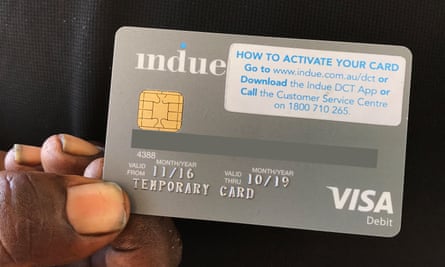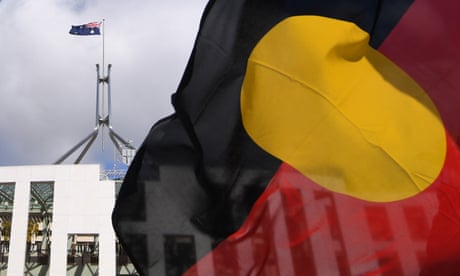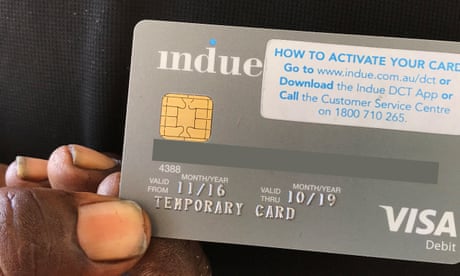Extract from The Guardian
NT government, health and justice organisations and academics oppose law to make trial sites permanent and expand scheme

Last modified on Tue 3 Nov 2020 03.32 AEDT
Only 10 of the 132 submissions to a Senate inquiry support the government’s cashless welfare card bill, which aims to make the current trial sites permanent and expand the scheme into the Northern Territory and Cape York.
Ahead of a public hearing on Thursday, a review of the submissions published by the inquiry shows about 90% expressed outright opposition or major concerns about the plan, which was announced in the federal budget last month.
The Aboriginal and Torres Strait Islander social justice commissioner, June Oscar, said the application of the card had “not been shown to be reasonable, necessary and proportionate” and that the current trials were not “warranted”.
“As such, the commission has serious concerns about the current bill, which would see the [cashless welfare card] become an ongoing program,” Oscar said in her submission.
Other critics included the NT government, several Indigenous health and justice organisations, a number of local Aboriginal corporations, legal and human rights groups, social service agencies, public health experts and academics who have studied the card.
While opposition to the bill was overwhelming, Andrew “Twiggy” Forrest’s Minderoo Foundation, East Kimberley Indigenous organisation Wunan Foundation, two local government leaders in the Goldfields regions and a former mayor of Ceduna were among those backing the card.
The controversial program quarantines up to 80% of a person’s welfare payments on to a card that prevents cash withdrawals and spending on alcohol and gambling products.
It aims to reduce social harms, including alcohol and drug abuse, but critics say it causes stress, stigma and is ineffective. Data published by the Guardian has suggested it failed to reduce family violence in one trial site.
Under legislation introduced to parliament last month, the existing trial sites at Ceduna in South Australia, the East Kimberley and the Goldfields areas of Western Australia, and Hervey Bay and Bundaberg in Queensland would become permanent. There are 12,000 participants in those areas, though the figure may rise when a pandemic-induced pause on new cards being issued is lifted.
The government is also seeking to move about 23,000 people in the Northern Territory and Cape York on to the program. Welfare recipients in the NT and Cape York are already on the “basics card”, which was introduced during the NT intervention in 2007.
It is estimated that 83% of those placed on the card in the NT will be Aboriginal, while the trial sites in WA and SA also have high Indigenous populations.
A number of academic experts said in submissions there was little empirical evidence to support the card’s continuation.
Noting their quantitative study of the Ceduna trial site, published this month, a team of Monash University researchers said they had found “no impact” from the card.
“Meaning, neither a decrease nor an increase in measured crime rates, emergency department presentations, electronic gaming (pokies) nor apprehensions for public intoxication,” they said.
“This analysis shows that the cashless [welfare] debit card, as presently implemented, is not delivering the benefits it was originally designed to deliver,” the researchers added.
The Australian National University researcher Elise Klein said in her submission the government had spent $4.8m on evaluations but failed to produce “credible evidence to support claims of effectiveness, efficiency nor suitability”.
Klein, among others, noted the government had brought forward the bill before the release of a final evaluation it commissioned from the University of Adelaide. An earlier evaluation was heavily criticised by the audit office.
Cardholders have often complained about being locked out of the local cash and online economy and of card failures and other technical problems.
The grassroots group No Cashless Welfare Debit Card Australia, which is based in the Hinkler region in Queensland, said the scheme had caused “heartache and trauma” for participants and their families.
The biggest issue experienced by cardholders was that their rents were sometimes declined without notice.
“This leaves people in financial stress as they panic about not being able to pay the rent on time,” the group said in its submission.
The Aboriginal Peak Organisations Northern Territory said the card was “paternalistic” and “discriminatory”.
The NT chief minister, Michael Gunner, said his government did not support the card unless it was “voluntary” or an individual was referred to the scheme through a court.
The government has no immediate plans for a national rollout, though the prime minister, Scott Morrison, has indicated he is open to the card being further expanded, particularly among young people.
Forrest’s Minderoo Foundation, one of the card’s original proponents, claimed it had “reduced ‘humbug’ from families” and that there was “evidence of reduced alcohol consumption and some violence”.
It backed making the trial sites permanent, the expansion into the NT and also called for the government to consider extending the card “nationwide for all Youth Allowance recipients”.
The Wunan Foundation, another supporter of the card, said the program had improved the lives of people living in the East Kimberley region.
It said that the card’s presence during the pandemic, when welfare benefits were doubled, led to a “broadly proportionate increase in spending on groceries and other basic household categories”, according to Department of Social Services data the foundation claims to have obtained.
“This means that the [card] is doing what Wunan hoped for when we called for it to be introduced in 2015,” Wunan’s executive chair, Ian Trust, said.
Trust was among a number of East Kimberley Aboriginal leaders who backed the card in 2015, although one later withdrew his support for it.
The Goldfields-based Coolgardie shire council also said the card had reduced social harms there.


No comments:
Post a Comment